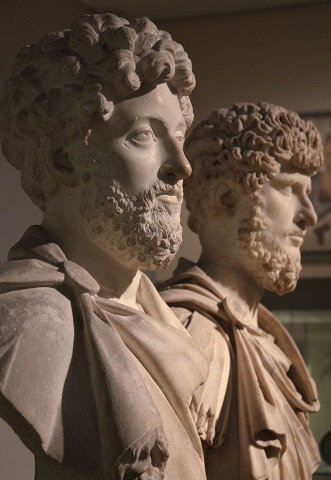Isolation Diaries #4 – Stoicism, Mindfulness & a Poem
BLOG
As the sun shines hotter and with the return to normality in far sight, days have become lighter. Slowly, my thoughts have come to terms with this new reality, with mindful techniques helping me through the darker days.
We’re not the first humans to suffer from a pandemic, and we won’t be the last. In fact, one of the worst plagues in European history occurred around AD166 to AD180, wiping out an estimated 5 million people across the continent.
During this era, Roman emperor Marcus Aurelius Antoninus penned a book outlining the psychological and moral tips that helped him at the time. His musings made him the last famous Stoic philosopher of antiquity, but his thoughts are just as relevant today.
In his book, aptly named The Meditations, he discusses how fear is often greater than the object of the fear itself. Fearing spiders is worse than the puny spider itself; worrying about a difficult conversation is often worse than having the conversation; being anxious about an illness is often worse than being sick.
One of the main ideas of modern stoicism is letting go of that which you cannot control, referred to as “the dichotomy of control.” We cannot control everything around us, but we can control our thoughts and actions. In other words, we cannot control the Coronavirus pandemic, but we can control the way we think about it and respond to it.
This idea is central in the psychotherapy technique Cognitive Behavioral Therapy (CBT), as well as the concept of mindfulness. As we bomb through life at full-speed, many of us forget, or simply don’t have the time to pause, reflect and process our thoughts.
Mindfulness is as important to our health as eating well and exercising, as it takes care of our mental wellbeing. Being left more or less alone in my own thoughts over the past weeks, I’ve had to cling onto mindful techniques to keep anxiety at bay. On days when the ‘society is heading for a disaster, I will lose my job, everyone will die’, thoughts become deafening, meditation provides some relief.
If you’re interested in mindfulness, I recommend checking out the headspace app. They have a 14-day free trial to try out their courses, which each last between 10 - 20 minutes, short enough to squeeze into your day.
I’ll leave you with a poem I wrote this week. A reminder to breathe:
Breathe
Life seems to roll by in the blink of an eye until you
Stop
Squeeze your brakes and release the pressure
That was building up with no time for leisure
Climbing to new heights in the pursuit of whatever
Pushing to complete each and every endeavor
You forget to breathe
Breathe
Ease off the brakes
Pedal at your own pace
For life is no race
There’s no first place
No limited space
Savor the taste
And breathe
Breathe.
By Amy Jones












